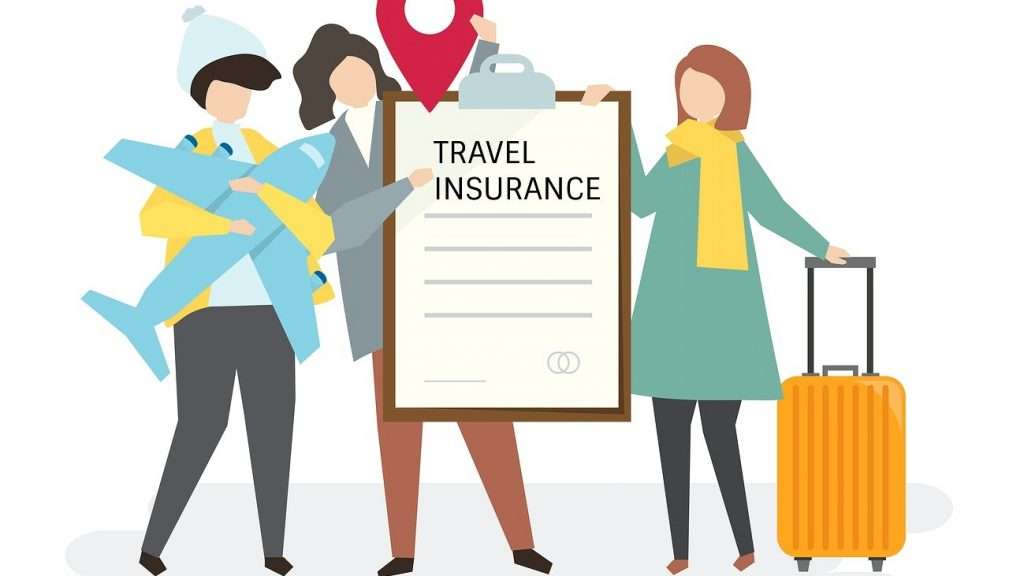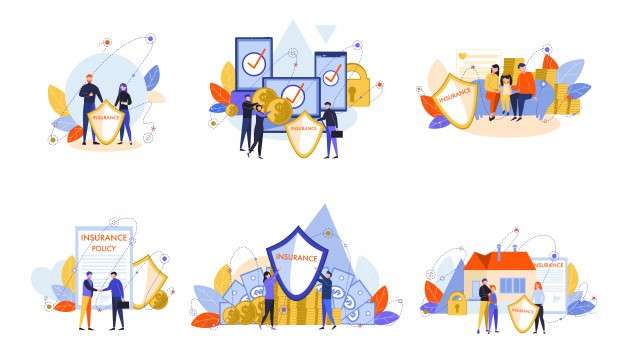Purchasing insurance is the key to ensure your financial well-being. Should any unforeseen events take place, insurance plans help to protect yourself and your loved ones by securing your financial well-being.
That being said, you will find insurance to be one of the most effective methods in managing risks. Besides life insurance, you should also invest in general insurance.
If you’re new to buying insurance and have no clue about what general insurance is, don’t worry! We will help you.
Here, we will be exploring the different types of insurance and how to choose the right insurer. Check it out!
Types of General Insurance

General insurance, also known as non-life insurance, is an insurance that covers aspects other than the life of the insured person.
Usually, general insurance policies provide a coverage period of one year, with the full premium paid on a one-time basis.
There are two main categories for general insurance products, namely the Personal Lines and the Commercial Lines. The former is designed to cater to the daily needs of the public, while the latter concerns the needs of businesses or corporations.
Personal Lines
This section provides brief explanations of the different types of products that are categorized under Personal Lines.
1. Motor Insurance

Under the Road Transport Act 1987, this insurance is made compulsory for all vehicles in Malaysia. As a result, motor insurance makes one of the largest insurance sectors among the other general insurance.
There are many types of motor insurance policies available to suit the varying needs of drivers and riders. Corresponding to the Road Transport Act 1987, the Act cover is the minimum required coverage.
It concerns the legal liability of the third party’s death or physical injury, excluding the passengers. Other types of motor insurance include third-party cover, comprehensive cover, and third-party, fire, and theft cover.
2. Householder Insurance

Also known as the Fire Insurance and House Owner Insurance, this insurance concerns the loss or damage of clients’ buildings and/or its contents caused by lightning or fire. Clients can expand the coverage to include other perils, such as flood, earthquake, storm, explosion, riot strikes, and so on.
3. Medical and Health Insurance

This policy is designed to provide coverage on the costs spent on private medical treatments due to illnesses or accidents. Some standard healthcare services covered include prescription fees, hospitalization, Intensive Care Unit (ICU) costs, surgery fees, and more.
4. Personal Accident Insurance

The Personal Accident (PA) insurance is an annual policy that covers injuries, disabilities, or death resulting from violent, external, accidental, and visible events. PA insurance differs from life and medical insurance in it area of coverage.
Usually, PA policies provide coverage on incidents such as accidental death, permanent disablement, medical expenses, hospitalization benefits, funeral expenses, and weekly indemnity repatriation benefits.
5. Travel Insurance

Travel insurance provides coverage for accidents and losses of the insured during their journey by air, sea, or land. For example, loss of luggage, personal belongings, money, and travel documents. This also extends to hijacking, curtailment, repatriation, death or permanent disablement, and medical expenses.
6. Commercial Lines

Now, we will explain some of the conventional insurance under Commercial Lines.
- Liability Insurance
- Liability insurance is also known as commercial insurance. It protects the insured when they are sued for claims stated under the policy. The common liability insurance types are public liability insurance, product liability insurance, professional indemnity insurance, workmen’s compensation insurance, and employer’s liability insurance.
- Fire Business Interruption Insurance
- Also known as consequential loss insurance, this insurance protects the insured from the loss of profit. It covers losses caused by material damages that result in the reduction of production, sales, and profits. To enjoy these benefits, you need to purchase the Fire Insurance mentioned in the previous section.
- Goods in Transit Insurance
- This policy covers the loss or damage of goods that occur during short journeys by road, rail, or boat. Coverage is provided on an all-risks basis. This includes the loss or damage of goods by accident, theft, pilferage, and fire.
- Money Insurance
- Money insurance covers the loss of money during transit and while kept securely, such as in safe rooms. It also covers the loss of money caused by hold-ups while on business premises. The term “money” refers to banknotes, cash, currency notes, cheques, money orders, and postal orders.
- Burglary or Theft Insurance
- This policy protects the insured from loss or damage of properties caused by actual, forcible, and violent entry or exit. Besides that, it covers damages of properties caused by attempts of theft and threats, including armed robbery.
- Fidelity Guarantee Insurance
- This policy provides indemnity to the insured against loss of money or property caused by fraud or dishonesty of employees. Coverage is provided for the loss of money or goods discovered during the uninterrupted and continued employment of the employee, and during the period of insurance. The insured can also make claims if the employee’s fraud is discovered within six months of their death, dismissal, or retirement.
- Engineering Insurance
- This insurance is designed for employers whose organizations conduct continual installation or construction projects, which involve long-term use of equipment. Some insurances include machinery breakdown insurance, boiler and pressure insurance, contractors all risk insurance, and erection all-risk insurance.
- Marine Insurance
- This insurance covers the loss or damage of transport or cargo that transfer, acquire, or hold properties between their origin regions and destinations. Some types of marine insurance include marine cargo insurance, air cargo insurance, and marine hull insurance.
Selecting the Right Insurer
Now that you are exposed to the common types of general insurance plans, you might already have some ideas on which insurance to purchase. However, before you shop for insurance plans, it is vital to learn how to choose the right insurer. This section will teach you just that by explaining the factors to consider when selecting an insurer.
1. Financial Stability

Your potential insurer’s financial stability is of the utmost importance, as this factor directly indicates the level of protection you receive. Although there are regulators to monitor the financial health of insurers, some insurers still fail in maintaining financial stability.
Instead of solely relying on regulators, you can research on your insurer’s financial health via many rating agencies online.
2. Distribution Method

Insurers practice different methods in selling their products. Hence, by considering your buying preferences, you can easily obtain assistance in forms that suit your needs. For instance, if you find it a hassle to research a policy online, opt for insurers that sell their products through agents.
However, if you want to avoid paying the service fees charged by agents, choose insurers that sell their products directly to clients.
3. Service

The speed, accuracy, and courtesy of insurers are vital, especially when they respond to their clients’ requests.
One of the most effective methods in determining an insurer’s service quality is to consult an independent agent. Besides, you can also consult the clients of different insurers to obtain their feedback on the insurers’ services.
4. Claim Handling

While selecting an insurer, be sure to steer clear of insurers that practise unfair claims. To know more about an insurer’s claims handling, you can consult an independent agent.
Alternatively, you can browse the insurer’s website and look for complaints from other policyholders, as well as the enforcement actions filed against the insurer.
5. Coverage

Different clients require different protections from their insurers. Hence, the right insurer provides customizable policies that cater to the diverse needs of its clients.
While selecting an insurer, make sure that your insurer offers all the specific coverages you need.
6. Cost

The cost of an insurance plan varies greatly. Instead of choosing the cheapest policy immediately, take a moment to review the coverages as well as the terms and conditions of the policy.
Although some plans are cheap, they might not provide adequate coverages for the insured. Besides, you will also have to consider your financial circumstances before buying insurance. While some insurance policies may suit you, they can also be unaffordable.
Conclusion
This sums up all you must know about general insurance. By keeping the guidelines in mind, we believe that you can select not only the best insurance policies but also an excellent insurer to protect yourself and your loved ones.
We hope you find this article useful. If you enjoy reading this article, discover more financing and banking articles via LokaPost and more!






